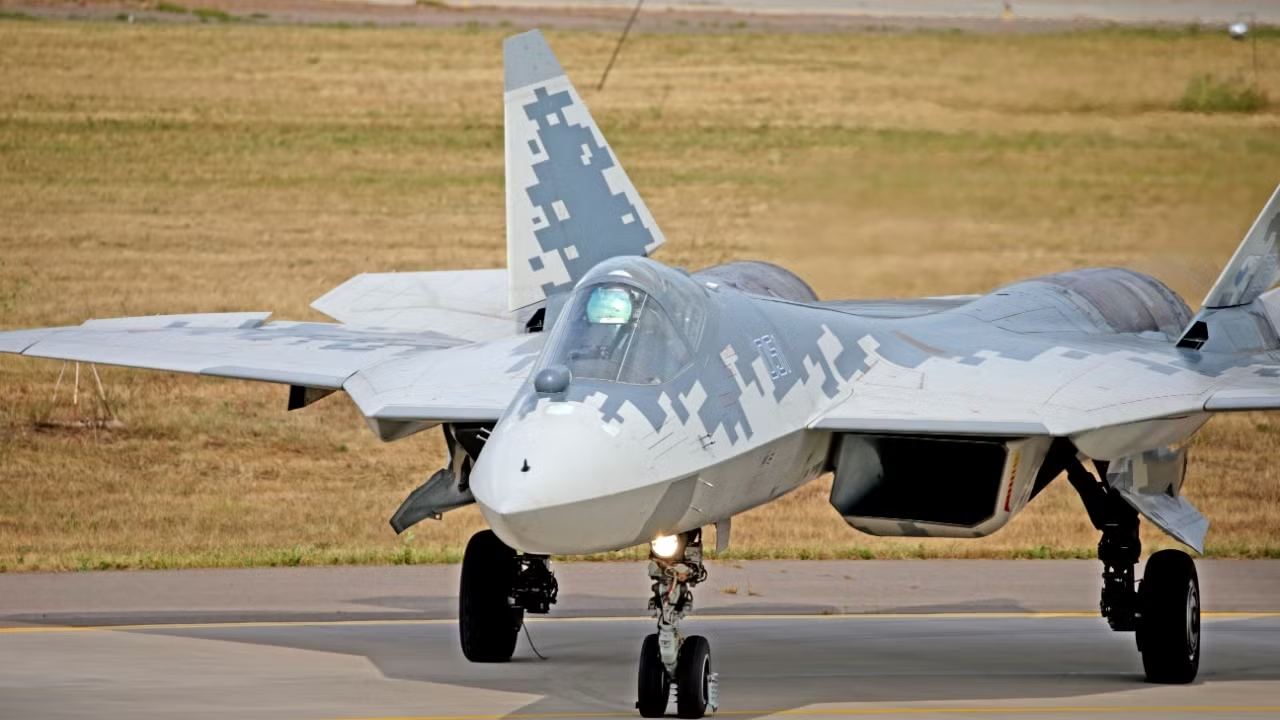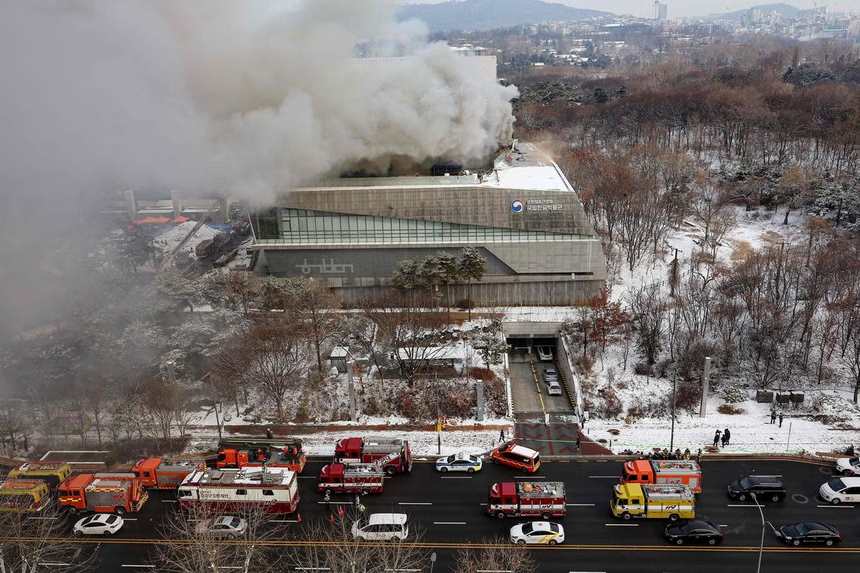Western Sanctions Endanger Russia’s Su-57 Fighter Jet Production

Department of Security and Military Strategic Research and Studies 17-10-2024

Russia’s production of the Su-57, its flagship stealth fighter jet, is being threatened by Western sanctions, according to the research group Frontelligence Insight. The sanctions have severely restricted Russia’s ability to legally procure critical components, especially those necessary for the aircraft’s advanced electronics. The Su-57, introduced in 2020, has seen limited deployment in combat, with experts suggesting that Russia’s hesitation to risk these aircraft stems from concerns about reputational damage and the loss of sensitive military technology.
Sanctions’ Impact on Su-57 Components

Frontelligence Insight reports that key components for the Su-57, including a German-made WA36 attenuator, PLR7 60-12 power supply, and EA-PS 3150 power supply, are now difficult to obtain legally due to sanctions. These components, crucial to the Su-57’s radar systems and avionics, underscore how dependent Russia’s military industry is on Western-made electronics. Frontelligence Insight emphasized, “Sanctions have put Russia’s Su-57 production in jeopardy,” as Russia’s domestic industries are unable to easily replicate or replace the high-tech systems previously sourced from abroad.
Limited Deployment in Ukraine

Despite the Su-57 being a symbol of Russia’s military advancement, its presence in Ukraine has been minimal. Since the onset of the conflict, Russia has largely refrained from deploying the aircraft on the front lines. Analysts believe this reluctance stems from a fear of losing the relatively few Su-57s in service and exposing their sensitive technology to adversaries. A Ukrainian strike on a Su-57 in June, while symbolically significant, did not alter the course of the war but highlighted the vulnerabilities of Russia’s advanced military technology.
Russia’s Strategic Hesitation

The UK Ministry of Defence, in a 2023 intelligence update, suggested that Russia’s hesitancy to commit Su-57s to combat illustrates concerns over reputational damage. The potential loss of an aircraft could tarnish the jet’s appeal on the international market and damage Russia’s military prestige. Moreover, the sensitivity of the jet’s technology makes it a high-risk asset in combat zones where it could be shot down or captured.
The Broader Economic Impact of Sanctions

Sanctions are also creating broader challenges for Russia’s economy. While Justin Bronk, an airpower and technology expert at the Royal United Services Institute, confirmed that sanctions have hindered Russia’s ability to acquire critical avionics and micro-electronics, the overall economic effect remains debated. Swedish economist Anders Åslund estimates that sanctions may be cutting Russia’s GDP by 3%, or around $56.4 billion annually. Conversely, some argue that Russia’s increased defense spending is actually propping up its economy.
Diverging Economic Opinions

Economists are split on the long-term consequences of sanctions on Russia’s military production. Alexandra Prokopenko, a fellow at the Carnegie Russia Eurasia Center, warned that Moscow’s rising defense expenditure could strain the national budget and create unsustainable financial burdens. On the other hand, Jay Zagorsky, an economist at Boston University, posited that military spending is currently supporting Russia’s economy by preventing a deeper recession.
In summary, while Western sanctions have disrupted Russia’s Su-57 production and impacted its access to vital components, the broader economic fallout remains a point of contention. Russia’s reluctance to deploy the Su-57 in active combat reflects concerns over reputational damage and the loss of cutting-edge technology. How the country will continue to cope with these challenges—both economically and militarily—remains uncertain, as sanctions and the war in Ukraine continue to strain its resources.





